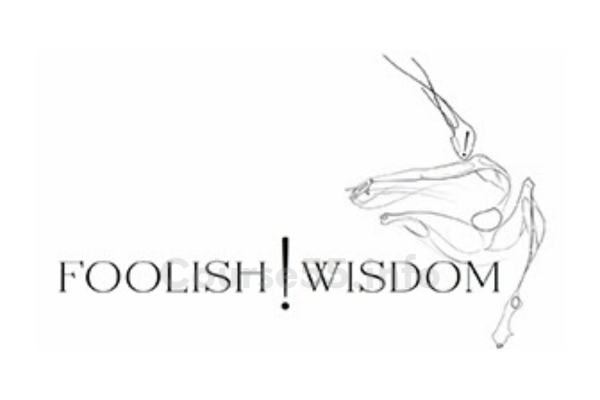-
×
 Next Level Radiant Lotus Qigong for Women By Daisy Lee
1 × $101.00
Next Level Radiant Lotus Qigong for Women By Daisy Lee
1 × $101.00 -
×
 Alpha Goddess By Hey U Human
1 × $93.00
Alpha Goddess By Hey U Human
1 × $93.00
Foolish Wisdom By Joseph Riggio
$1,299.00 Original price was: $1,299.00.$53.90Current price is: $53.90.
Foolish Wisdom: A Journey of Transformation – Immediate Download!
Let See The Content Inside This Course:
Description:
Joseph Riggio’s book “Foolish Wisdom: Experiencing the Hero’s Journey: Book 1: An Apprentice of Wonder” is more than just another self-help book; it is a comprehensive investigation of personal growth that skillfully combines spiritual concepts with neurological principles to produce a powerful story. This book serves as a roadmap, taking readers on a life-changing adventure that embraces what Riggio refers to as “foolish wisdom.” This has nothing to do with being stupid in the conventional sense, but rather with accessing a natural, childlike wisdom that inspires people to see and act in the world without bias. Drawing on his vast experience dealing with a variety of people, including leaders in progressive organizations, Riggio uses engrossing storytelling to demonstrate this.
Overcoming self-imposed constraints, which sometimes obstruct personal growth, is one of the main themes that runs throughout the story. Many people unintentionally lead with their limits, primarily because of deeply rooted beliefs, prior experiences, and cultural expectations, Riggio persuasively contends. According to this viewpoint, people usually undervalue their own abilities because they feel stuck in what he refers to as a “fixed mindset.” The book’s main focus is this idea of myopic perception, which challenges readers’ self-imposed limitations and encourages them to look within.

The Archetype of the Fool
The “fool” archetype in Riggio’s presentation is not one of ignorance but rather a metaphorical lens that allows reality to be perceived without the distortions brought about by prior experiences and cultural training. This viewpoint improves people’s ability to make decisions by enabling them to react to life with transparency and honesty. Riggio challenges readers to reevaluate their conceptions of intelligence and wisdom by contrasting the fool with more traditional images.
It is important not to ignore the fool’s infantile traits. Because of these qualities, people can face life fearlessly and with curiosity, and there are countless opportunities. The foundation for self-discovery and personal development is laid by this sharp contrast to the assumptions that frequently impair judgment. To demonstrate, let’s look at a typical situation: people are frequently apprehensive when presented with a fresh opportunity because they are afraid of failing. However, rather than viewing uncertainty as a barrier to overcome, Riggio’s paradigm promotes accepting it and viewing it as an opportunity for discovery.
Embracing Doubt and Dismantling Beliefs
Another significant aspect of Riggio’s work is his emphasis on the pivotal role of doubt in personal development. This may seem counterintuitive, but Riggio articulates how questioning one’s established beliefs often referred to as the “success formulas” ingrained by culture is essential. By dismantling these limiting beliefs, readers are encouraged to explore their thoughts critically and adopt a more open-minded approach to their lives.
In this context, Riggio presents practical strategies to help individuals gather information and remain receptive to new experiences. For example, creating a personal inventory of beliefs, assessing their origins, and recognizing how they shape decisions is a practical exercise that Riggio endorses. The exercise not only promotes self-awareness but also urges individuals to confront the limitations they may have unknowingly accepted.
Transformative Potential of Self-Discovery
The transformational potential embedded within self-discovery is a recurrent theme in Ridggio’s narrative. He invites readers to embark on a personal quest that is often enriched with unexpected findings. The journey to personal enlightenment is not just about identifying one’s capabilities but also about understanding one’s limitations. Riggio highlights that confronting these limitations opens pathways toward new possibilities.
This quest for self-discovery is not merely a solitary endeavor, as Riggio emphasizes the importance of connecting with others in meaningful ways. Engaging wholly in life and in relationships can lead to enriched experiences that shape one’s identity and worldview. This emphasizes the importance of genuine engagement with the world around us a fundamental aspect of Riggio’s philosophy.
Benefits of Embracing Foolish Wisdom
| Benefit | Explanation |
| Enhanced Decision-Making | By approaching life with a childlike curiosity, individuals make bolder choices. |
| Improved Relationships | Genuine engagement fosters deeper connections with others. |
| Greater Self-Awareness | Challenging ingrained beliefs leads to a more nuanced understanding of oneself. |
| Openness to New Experiences | Embracing uncertainty encourages exploration and learning. |
By implementing the principles of foolish wisdom, readers have the opportunity to transform their lives significantly. Riggio’s insights resonate deeply, encouraging a move away from narrow thinking and toward a more expansive, inclusive way of being.
Riggio’s Unique Perspectives
Riggio’s ability to relate neuroscientific concepts to personal development is a distinctive aspect of his work. He provides material not just to educate but also to shed light on mental patterns that can be changed for better results. Because of his vast experience dealing with people in a variety of industries, Riggio is able to frame his observations and give them a rich context. The book’s fundamental message is reinforced by this link between theoretical understanding and real-world implementation.
Furthermore, a broad audience may relate to Riggio’s writing because it is both captivating and approachable. Readers are able to fully immerse themselves in the content because each chapter flows seamlessly into the next. A layer of relatability is added by the personal incidents, which allow readers to recognize themselves mirrored in his path.
Key Takeaways from Foolish Wisdom
- Challenge Your Beliefs: Examine the limitations you’ve adopted and question their validity.
- Embrace Childlike Curiosity: Approach life with an open heart and mind, free from preconceived notions.
- Engage Authentically: Cultivate genuine relationships that enrich your understanding of the world.
- Utilize Doubt as a Tool: Recognize that questioning can lead to transformative insights and knowledge accumulation.
Conclusion
In the end, Joseph Riggio’s “Foolish Wisdom” acts as a manual, inspiring readers to venture outside of their comfort zones and investigate fresh avenues for personal development. The book presents a novel viewpoint on the process of self-discovery by fusing spiritual insights with neuroscientific ideas. People can learn to deal with the complexity of life with hope and sincerity by adopting the fool archetype.
For everyone looking for a deeper understanding and connection, Riggio’s work is more than just a story; it is a call to action. The examination of foolish wisdom provides readers with useful tools that can motivate them to make long-lasting changes in their lives. When one fully embraces life, the journey’s transforming potential becomes apparent, making “Foolish Wisdom” a priceless resource for introspection and personal growth.
Frequently Requested Enquiries:
Innovation in Business Models: We employ a group buying strategy that allows customers to divide costs and receive a lower rate for popular courses. Despite content providers’ concerns about distribution tactics, this approach benefits low-income individuals.
Legal Aspects: The legality of our conduct raises a number of complex issues. Although we do not have the course developer’s official permission to redistribute their content, there are no clear resale restrictions stated at the time of purchase. We have the opportunity to provide affordable educational resources because of this uncertainty.
Quality Control: We ensure that all of the course materials we purchase are identical to those supplied by the writers. However, it is important to understand that we are not approved vendors. Consequently, our products don’t include:
– In-person consultations or phone conversations with the course developer for advice.
– Access to sites or organizations that are exclusive to authors.
– Engaging in private forums.
– Simple email support from the author or their team.
By offering these courses independently, without the premium services of the official channels, we hope to reduce the barrier to education. We appreciate your understanding of our unique approach.
Be the first to review “Foolish Wisdom By Joseph Riggio” Cancel reply
You must be logged in to post a review.

















Reviews
There are no reviews yet.